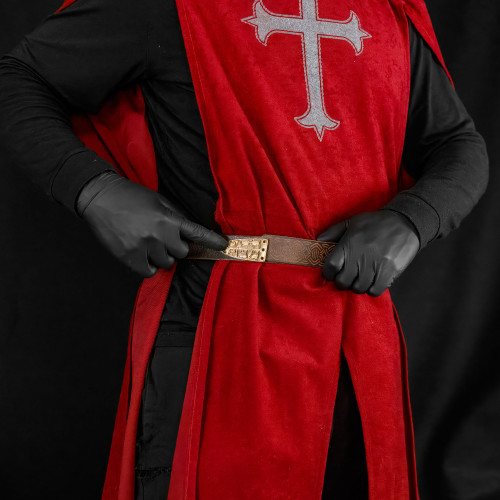The Scottish Thistle is the oldest recorded 'National Flower' and is probably one of the most well-known, and easily recognized symbols of Scotland. It is beautiful, fierce and robust - the perfect emblem for a country of stunning landscapes, turbulent history and resilient people. There is a legend behind why it's been adopted so proudly by the Scottish people which you can read below but for now let me tell you about this amazing piece. The Emblem of Scotland Closed Thistle Belt Chape is constructed completely out of 100% genuine brass. It features 3 prongs on the back so you can adhere this chape to the end of a belt or decorative strap. Depicted is an image of a closed thistle in the window of a Scottish Church. This piece is handmade with impeccable detailing such a lovely piece with be just that added something you need to bring a belt up to the next level.
Legend of the Scottish
Thistle According to legend, the thistle delivered Alexander III's army from an attempted surprise attack by Norse invaders. The enemy was sneaking up on the Scots camp at night, and the soldiers removed their shoes so that they might be stealthier. But one barefoot Viking stepped on a thistle; his cry of pain alerted the Scots of the presence of the army. This legend suggests the Battle of Largs, fought in northern Ayrshire in 1263 between Haakin IV of Norway and Alexander III. The Viking defeat marked the beginning of the expulsion of Norse influence from Scotland.
Legend of the Scottish
Thistle According to legend, the thistle delivered Alexander III's army from an attempted surprise attack by Norse invaders. The enemy was sneaking up on the Scots camp at night, and the soldiers removed their shoes so that they might be stealthier. But one barefoot Viking stepped on a thistle; his cry of pain alerted the Scots of the presence of the army. This legend suggests the Battle of Largs, fought in northern Ayrshire in 1263 between Haakin IV of Norway and Alexander III. The Viking defeat marked the beginning of the expulsion of Norse influence from Scotland.












